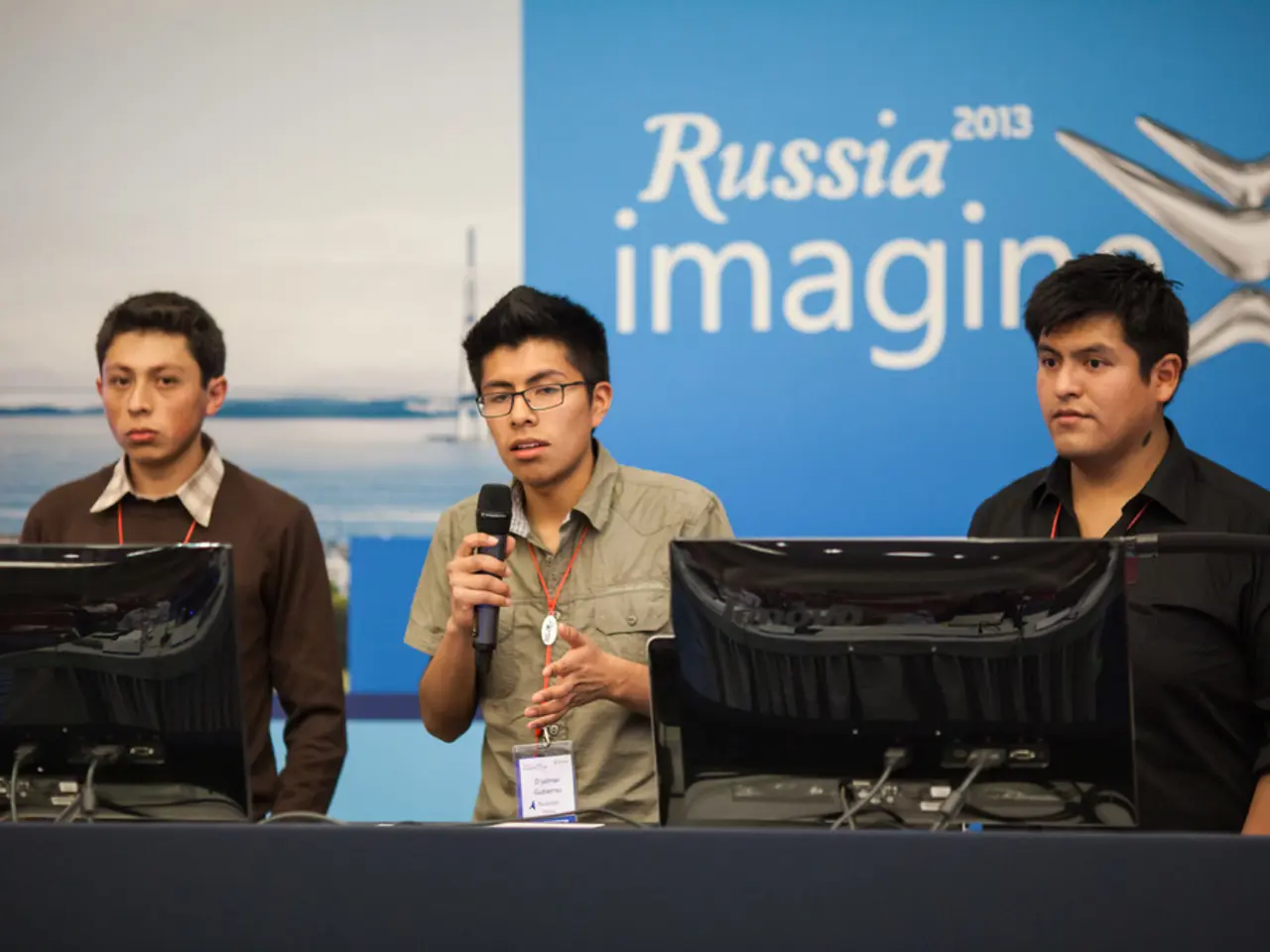NATO troop presence in Ukraine deemed hazardous and pointless by the Kremlin
The ongoing conflict between Russia and Ukraine continues to dominate global headlines, with both nations holding firm to their respective positions. Here's a summary of the latest developments:
Russia's primary objective in the Ukraine conflict, as stated by the Kremlin, is to prevent Ukraine from joining NATO. This stance has been reiterated by Russian President Vladimir Putin, who has expressed his opposition to the presence of NATO troops in Ukraine.
Negotiations between Putin and Ukrainian President Volodymyr Zelensky have been a point of contention. Putin has questioned the legitimacy of Zelensky's presidency, stating that his term expired last year. He has also asserted that Zelensky no longer has the legal authority to sign any agreements.
Despite this, Kyiv has stated that at least seven states are ready to host a summit between Putin and Zelensky, including Turkey and three Gulf states considered neutral in the conflict. However, Putin has expressed his reluctance to travel abroad for such a meeting, while offering to receive Zelensky in Moscow for talks, assuring the Ukrainian president's safety.
The situation in Ukraine has led to the implementation of martial law, which, according to Ukrainian law, means that no elections are held during the war, and the president's powers are extended. This has been a point of contention, with Putin denying that Zelensky's powers were extended due to the martial law declared in Ukraine because of the Russian invasion.
The West, particularly the United States under former President Donald Trump, has been actively involved in efforts to organize a meeting between Putin and Zelensky. Potential venues included Budapest, Switzerland (Geneva), and Austria for such talks. European leaders, part of a "coalition of the willing," have also engaged in discussions supporting Ukraine's security guarantees, but have been cautious about antagonizing Russia or overtly organizing a summit themselves.
The Kremlin has maintained its stance that the war in Ukraine has roots in NATO's expansion to Russia's borders. In response, Putin has argued that no foreign troops would be needed in Ukraine as part of a long-term peace agreement. A potential presence of European NATO troops in Ukraine would mainly be in the form of large-scale training missions, not a classic peacekeeping force.
As the conflict continues, both sides have issued threats. Putin has warned that any military forces appearing in Ukraine, especially during the fighting, would be considered legitimate targets and would be destroyed. This warning comes amidst discussions among Western states from the Coalition of the Willing about possible security guarantees for Ukraine after the end of the war, with many countries expressing willingness to send troops.
Russia, too, has expressed its need for guarantees for its security in the discussion about security guarantees. Kremlin spokesman Dmitry Peskov has justified Moscow's repeated rejection of foreign troops near Russia's border, stating that it poses a threat to Moscow. Peskov has also emphasized that NATO sees Russia as an enemy and has written this in its documents.
The complex and volatile nature of the situation in Ukraine and Russia continues to pose challenges for diplomatic efforts aimed at finding a peaceful resolution.
Read also:
- ICE directed to enhance detention conditions following NYC immigrants' allegations of maltreatment
- Israeli finance minister issues warnings about potential annexation of West Bank territories
- United States faces rebuttal from South Africa over allegedly deceitful human rights report and assertions of land expropriation
- Accident at Rodalben Results in Injuries; Geoskop Area near Kusel Affected After Stormy Weather








